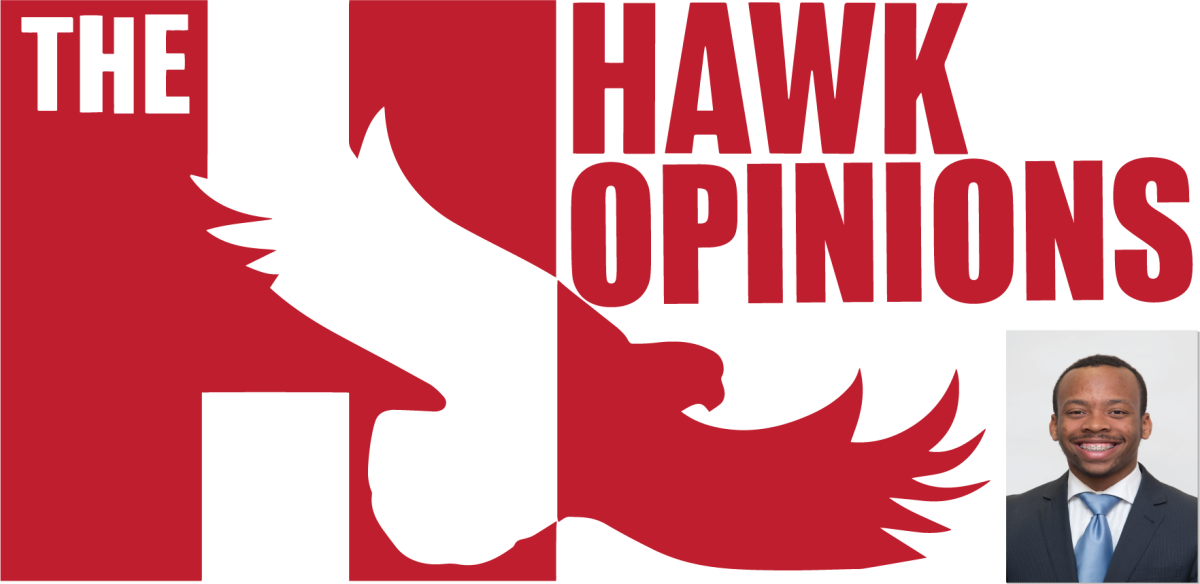I own my intent, you own my impact
On April 16, St. Joe’s concluded a yearlong commemoration of the 50th anniversary of a speech delivered by Martin Luther King Jr. on campus Oct. 26, 1967. Wideyveline
“Taicha” Morin ’20 was selected to share a reflection that would introduce King’s mentee, Congressman John Lewis (D-Ga).
After offering reflections, Morin was followed by University President Mark C. Reed, Ed.D. Reed told the story of how he first met Morin. He admitted that at the time he could not pronounce nor remember her name.
In an effort to be personal, he decided to call her Brooklyn, because that was where she was from.
Morin said she wasn’t offended when he did that. “I knew it came from a genuine place and showed an appreciation for me, but I do see the bigger picture issue,” said Morin. “I knew from the moment that he said it, the backlash it was going to get because that’s something that happens to us [students of color] on campus all the time.”
No doubt this was an unscripted effort to be heartfelt and personal, demonstrating humanity and the fondness that Reed has developed for Morin.
But, the next day a white, cisgender male, Catholic student, made a statement that left many members in the Center for Inclusion and Diversity speechless.
When the student entered the space he addressed Morin.
“Hi Wavaline!” said the student.
Seeing how this was not uncommon, Morin corrected the student.
“That’s not my name” Morin said she said to him, “That’s not my name, you know that.”
“Well Dr. Reed doesn’t know your name either,” the student responded.
In other words he was arguing that if Dr. Reed didn’t know her name, then, why should he [the student] use her preferred name.
When individuals like this student have already chosen not to be aware by ignoring the bigger issues at hand: institutional racism, white privilege, and masculinity, they affirm this privilege. In this case the student asserted his white male privilege.
Morin said she has been called a lot of less favorable names than Brooklyn over the years, like “Wolverine,” “Wide-Line,” “Ta-Chia pet,” and “Taca.”
“I think I’ve got immune to people butchering my name over the years,” said Morin. “I like ‘Brooklyn.’ I’m proud of who I am and where I am from.”
The problem is, this “renaming” perpetuates the erasure and reconstruction of marginalized identities by the dominant narrative to fit what they are most comfortable with and what works best for them. As usual, those marginalized individuals are simply expected to acquiesce to these changes.
Moments before taking the stage, Dr. Reed taught Father Daniel Joyce, S.J. how to pronounce Morin’s name, so Father Joyce would introduce her correctly. With Reed’s own lived experience, and his willingness to help Father Joyce, this narrative could have played out differently, but it didn’t.
We must all acknowledge our privilege and the power that it yields. When Dr. Reed decided to use the unscripted reference calling Morin “Brooklyn” there were consequences he could not have foreseen.
One might even make the assertion that either way this series of events has turned into a learning experience for both Reed and those of us who are not consciously aware of our implicit biases.
In the few days after the event, many conversations have been ongoing among students of color and woke white students, faculty and staff about Dr. Reed’s story about his nickname for Morin, and the young man who deliberately mis-named Morin.
Had Morin herself addressed any personal feelings of degradation, whether significant or not, in regard to such a minor part in this historic event, would she have been dismissed? Deemed overly sensitive, aggressive or ungrateful and unworthy of such a privilege of recognition? Maybe.
It should not be on marginalized people to continuously correct bias, implicit, or otherwise, perpetuating a cycle that allows others to write the stories of our struggle as we tuck our head low, ensuring that we don’t make waves.
Our names are more than just letters randomly placed together. They are an extension of who we are, given with an intention to be valued and respected. At the same time Morin, doesn’t want the correction to define her either.
“I just hope this teachable moment doesn’t create false narratives about people. I’m not a victim. Reed isn’t a villain. He’s human,” Morin said. “It’s a teachable moment. The moral of the story, we are worth being remembered and learning our names.”









































Susan Liebell • Apr 26, 2018 at 7:48 am
Thank you Alim for this thoughtful essay. I winced and felt pain at the president’s words. You captured the wider implications and the greater challenge that we face as a campus.